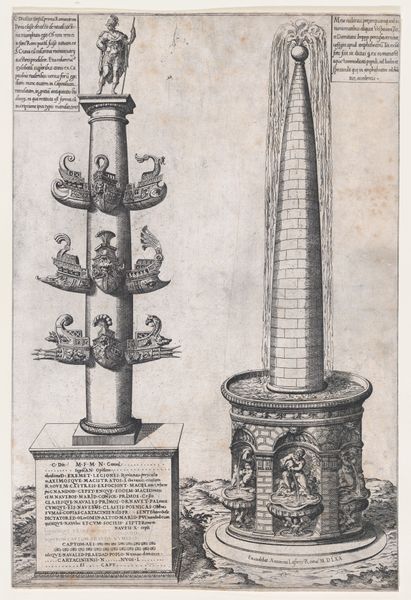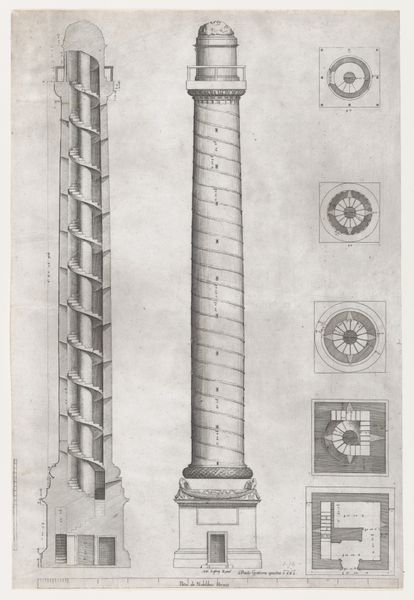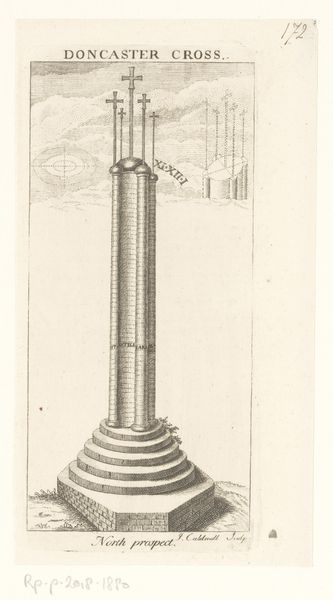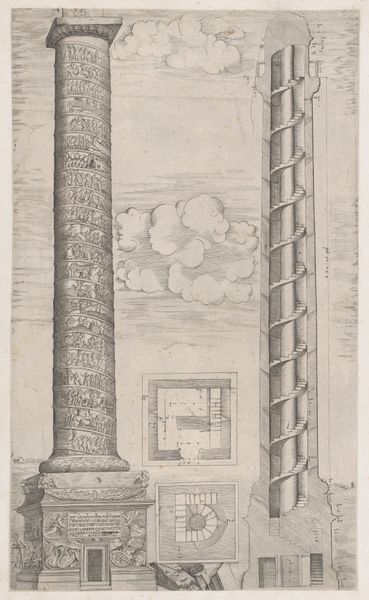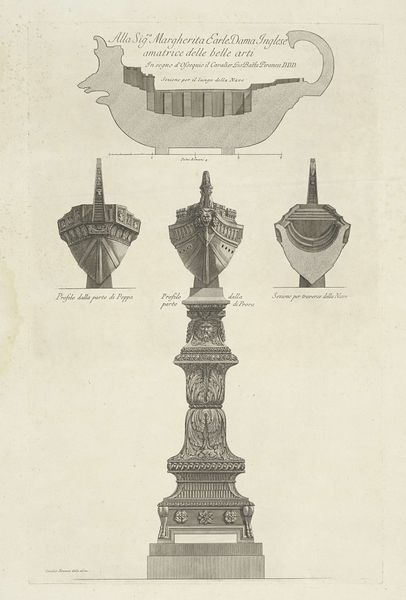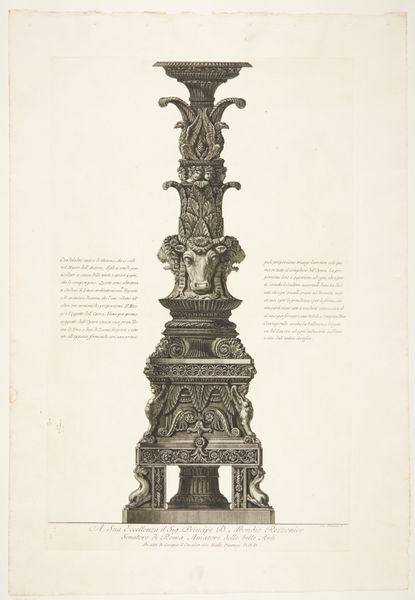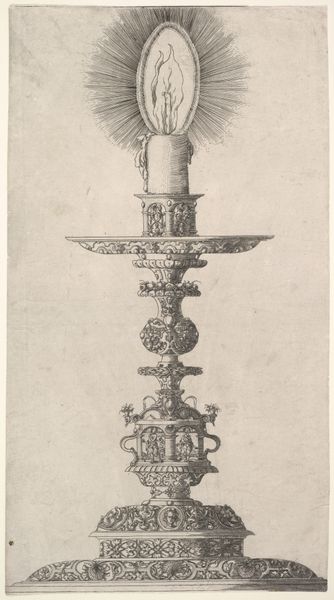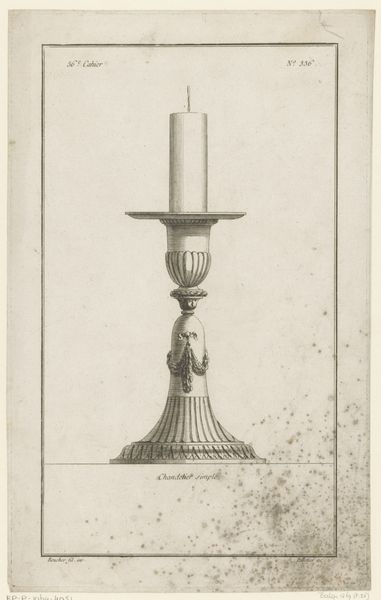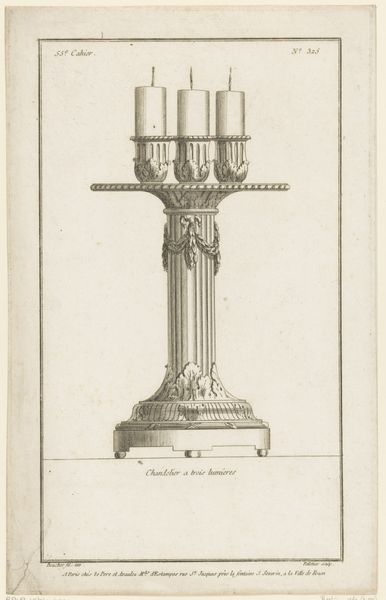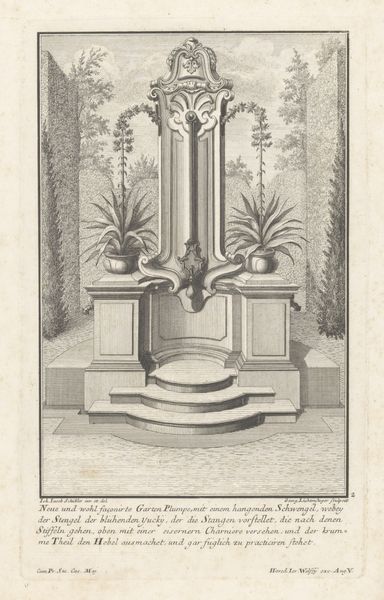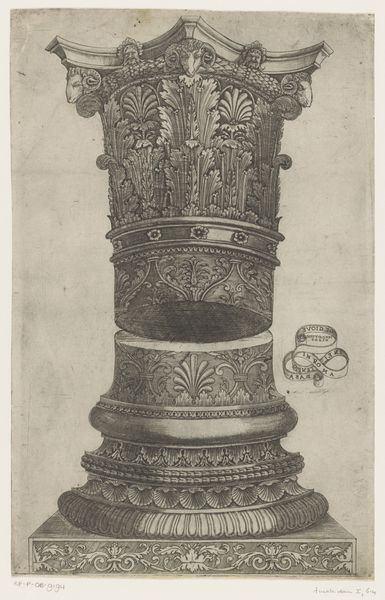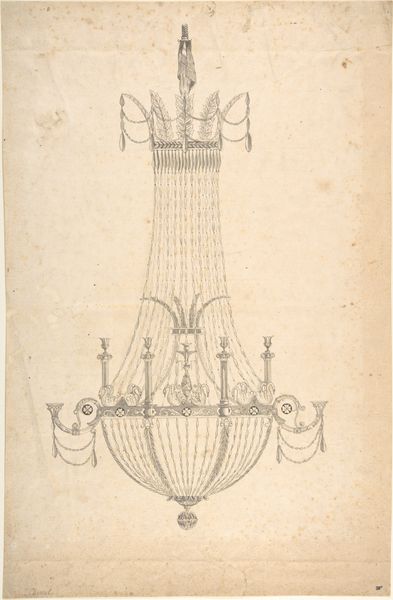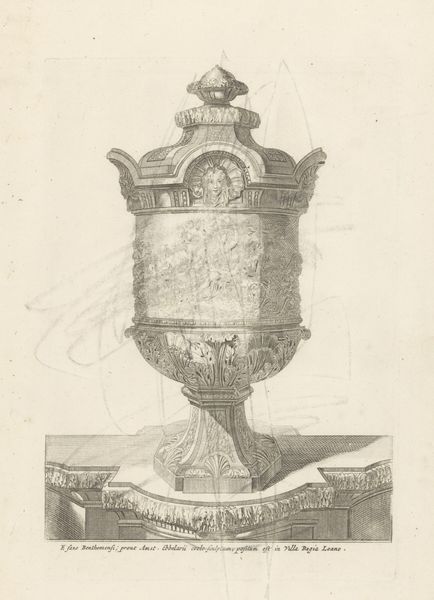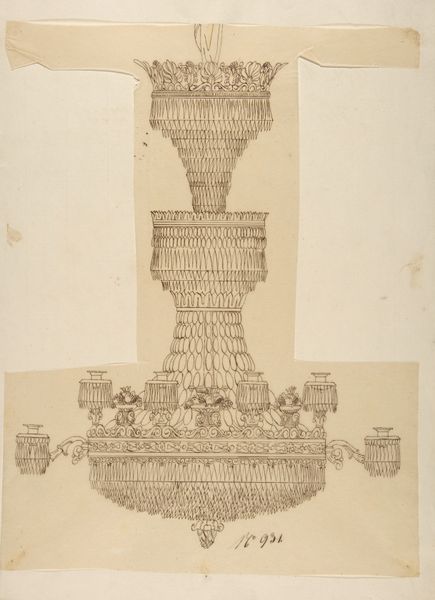
drawing, print, engraving, architecture
#
drawing
# print
#
ancient-mediterranean
#
column
#
cityscape
#
history-painting
#
engraving
#
architecture
Dimensions: mount: 22 1/8 x 16 13/16 in. (56.2 x 42.7 cm) sheet: 17 15/16 x 12 1/8 in. (45.5 x 30.8 cm)
Copyright: Public Domain
Editor: This engraving from 1575, titled "Speculum Romanae Magnificentiae: Column of Duilius," presents two rather striking columns. The column on the left, adorned with ships, looks like a strange trophy. What symbolic meaning was commonly attributed to columns like these during that era? Curator: The column, throughout history, served as a powerful symbol, evoking notions of strength, stability, and commemoration. Notice the rostral crowns—those ship-shaped ornaments? These evoke victory at sea, a potent emblem of Roman power. But look closer; these aren't just decorative elements. They embody collective memory, recalling specific naval triumphs and inscribing them, quite literally, onto the urban landscape. What emotions do you think this type of visual vocabulary inspires? Editor: I suppose they were designed to instill pride and a sense of historical connection in the viewer. Were they reminders of Rome's dominance and achievements? Curator: Precisely. It’s a calculated visual language meant to shape perception. Consider the right column: water cascades around a tower, signifying purification and the life-giving force of water in ancient Rome. These aren't just records of past events. They were, and continue to be, active agents in constructing and reinforcing a narrative of power. Do you think modern monuments serve the same cultural purpose? Editor: I can definitely see parallels. It gives me a lot to consider. Thanks for the illuminating points regarding cultural memory. Curator: My pleasure! Examining visual symbols offers valuable perspectives on how culture transmits and transforms over time.
Comments
No comments
Be the first to comment and join the conversation on the ultimate creative platform.
